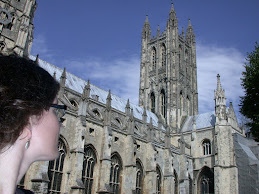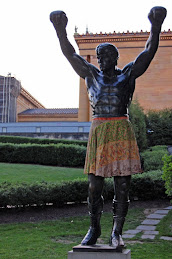As part of a course on Middle Eastern Literature that I am teaching -- or rather workshopping with the students, we all are reading one book independently.
I selected from our school library -- bless the librarians for ordering such wonderful books for us to read and enjoy -- a book by Hugh Kennedy called, The Great Arab Conquests: How the Spread of Islam Changed the World.
I chose this book deliberately because I so seldom get the chance to read non-fiction. This one seemed well-written and well-researched and informative. Kennedy focuses on the period between 632 when the Prophet Muhammed died and 750 when the Umayyad caliphate fell. The book numbers of 400 pages and so I expect an exhaustively detailed recitation of the politics, history, and culture of the period.
So far I am only on p. 54, but I have learned quite a bit. I just want to highlight of few items.
First, Kennedy uses the term ""social memory" (5). This is a new coinage (or new to me) which roughly corresponds to the folklore idea that epics and myths contain representations of contemporary attitudes and traditions so that even if the epic tells of the feats of a semi-divine being, embedded in the seventh-century epic are seventh-century attitudes to death, kings, etc. So I rather like this term "social memory" because it elegantly encapsulates a rather clumsy academic assumption about how folk narrative is synthetic and syncretic.
Second, Kennedy describes the varied landscape of the Arabian peninsula so I better understand the differences between the nomadic Bedouin and the sedentary Arabs who lived in more fertile areas (particularly on the southern tip of the peninsula) or lived in towns located on trade routes. Suddenly it made sense how the geography dictated the differences between the tribes rather than the tribes themselves dictating the differences.
Third, that the term Muslim refers only to those people who practice Islam and that the term Arab refers only to those people who speak Arabic as their mother tongue. As Kennedy says, "If not all Muslims were Arabs, likewase not all Arabs were Muslims" (7)
Fourth, and this is more a stylistic reason, Kennedy does a masterful job luring the reader forward in his history through selected use of rhetorical questions and astute observations. He asks why the Arabs and later Muslims were able to conquer most of Middle Eastern world. He notes that conquer in Arabic is the word fath which means "opening" (6). So fath might mean opening by force or opening by submission and payment of a tithe. I like the way he discusses how a word in Arabic is given a rough equivalent in English which misses the nuances of the original Arabic word.
This book will not be a fast read and I am sure some of the details will seep from my memory, but if I can gain a more comprehensive and balanced understanding of this period of Muslim history, I will have gained.
Tuesday, February 10, 2009
Subscribe to:
Post Comments (Atom)









No comments:
Post a Comment